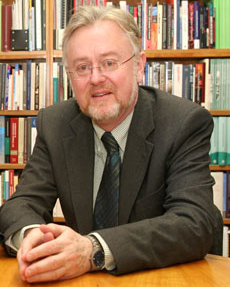The Role of Modern International Commissions of Inquiry
On 5 September 2017, Alessandro Tonutti defended his PhD dissertation "The Role of Modern International Commissions of Inquiry: A First Step to Ensure Accountability for International Law Violations?". The supervisor is Professor W.A. Schabas.

In the latest twenty years we have witnessed an exponential proliferation of international commissions of inquiry mandated to investigate serious violations of human rights and international humanitarian law. However, the inquiry tool has been originally institutionalised at the beginning of the 20th century as mean of preventive diplomacy aimed at stating the facts for dispute settlement purposes. Since then inquiries have significantly evolved into mechanisms that denounce and shed light on serious violations of international law in order to provoke a response by the international community.
What are the underlying causes of this new role and of the recent surge of inquiry commissions? Should commissions of inquiry be viewed as merely fact-finders or as law-applicable/adjudication bodies? Should their tasks be confined to finding the facts or may they perform more dynamic and political roles such as raising alert and provoking reactions? What has been (and arguably should be) the relationship between commissions of inquiry and international tribunals? What has been the impact of the work of these commissions so far and should certain trends be rectified?
These and other questions are the core of this academic contribution which, through a comprehensive analysis of the work and practice of commissions of inquiry, aims to shed more light on a topic that has increasingly become the focus of intense debate among academics, practitioners and institutional and political decision-makers.

Prof. dr. W.A. Schabas about Alessandro Tonutti
'Alessandro Tonutti's thesis breaks new ground by examining the relationship between the modern and historic phenomenon of Commissions of Inquiry and the issue of accountability for serious violations of international law. In particular, he looks at how the more recent commissions have interpreted their mandates.
The thesis is being jointly supervised by Leiden University and the Scula Superiore Sant'Anna, in Pisa, Italy. Later in the year, there will be a second oral defence at that institution. Such a 'co-tutelle' is an important form of academic cooperation within Europe.'
